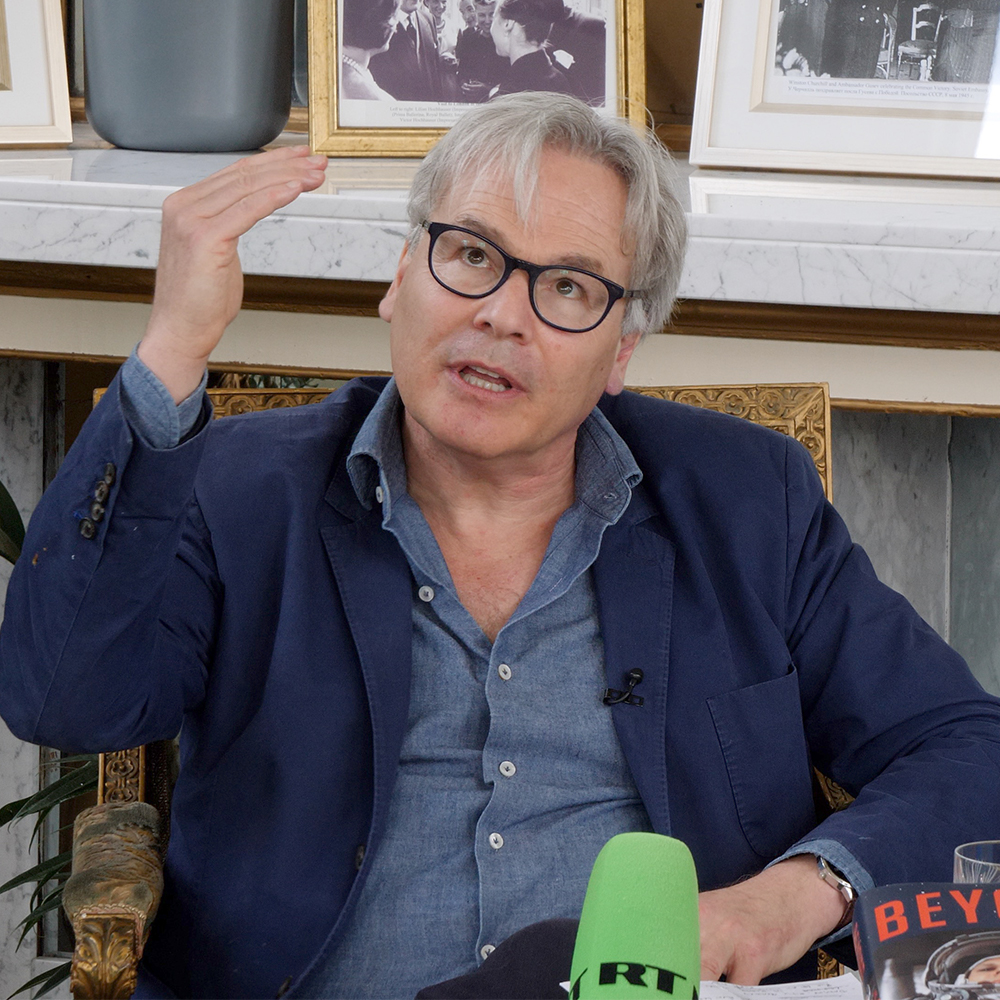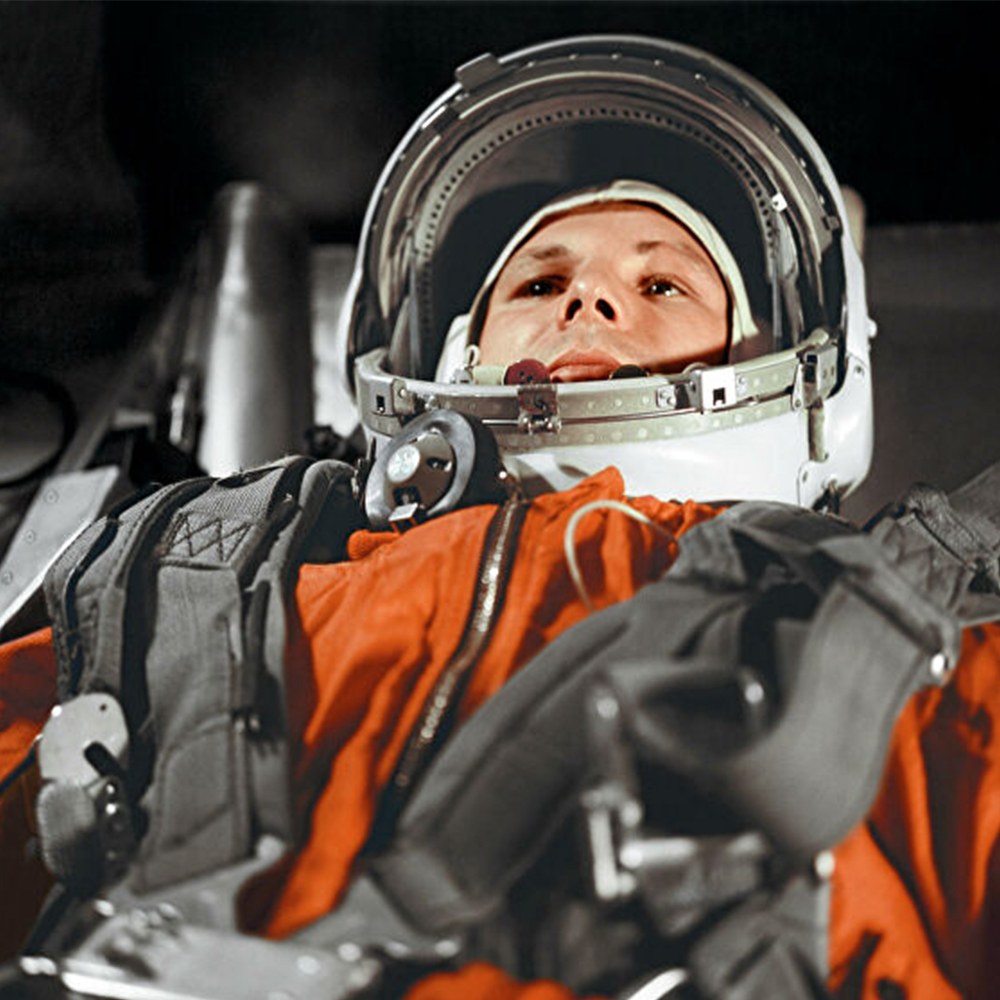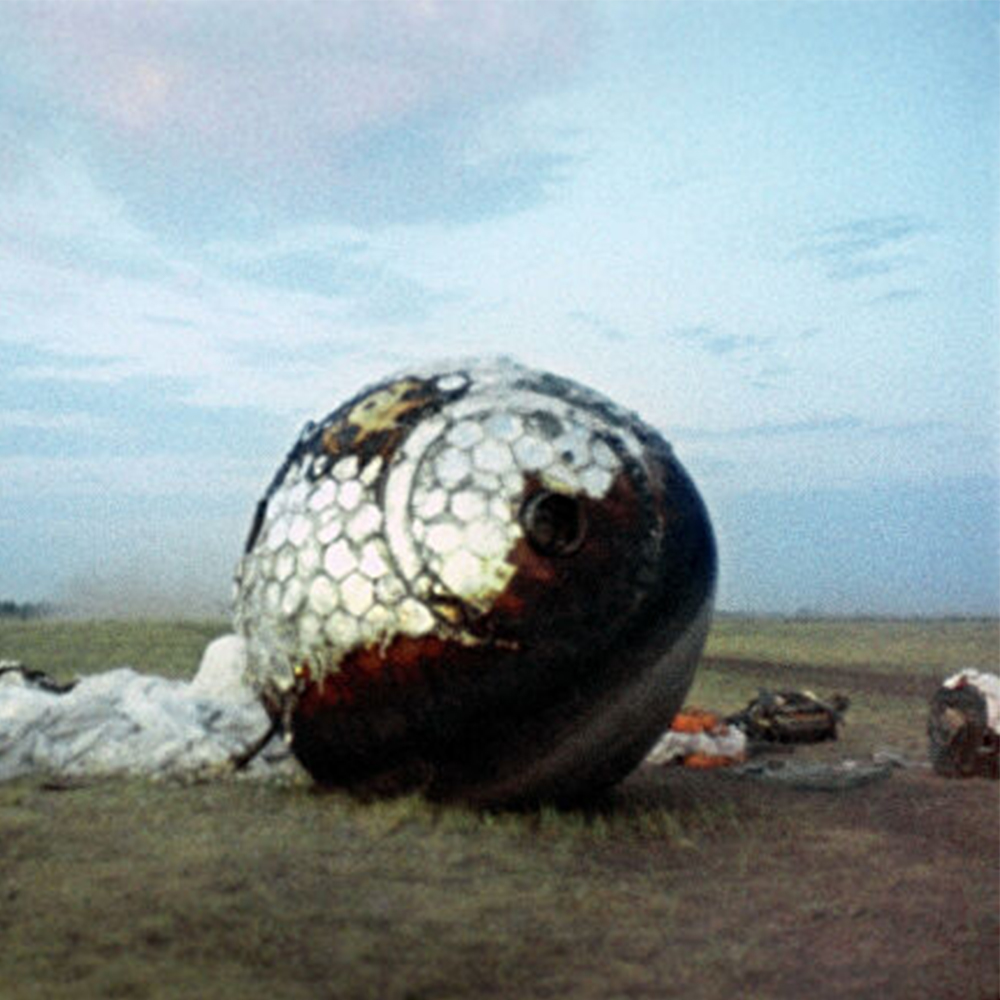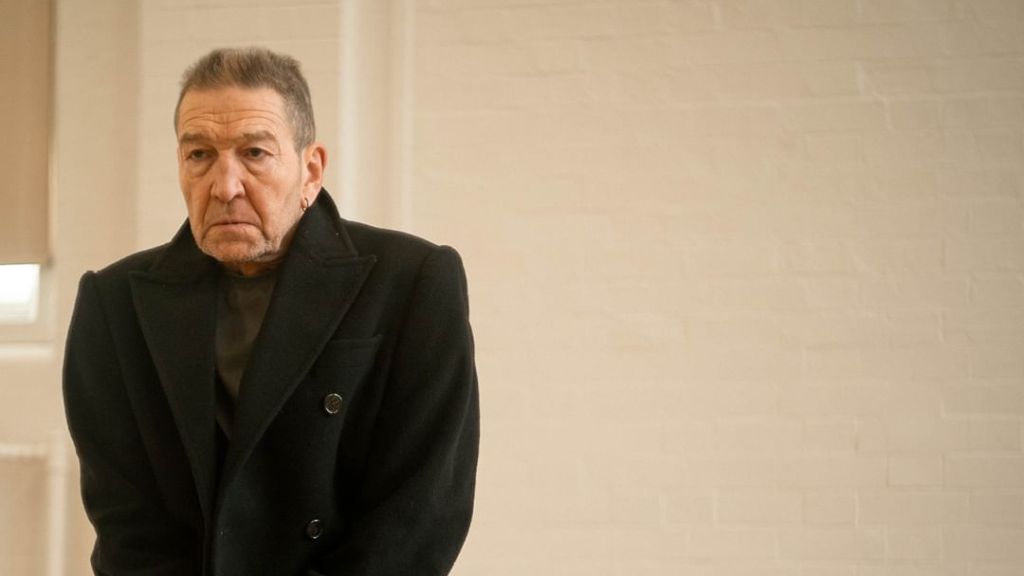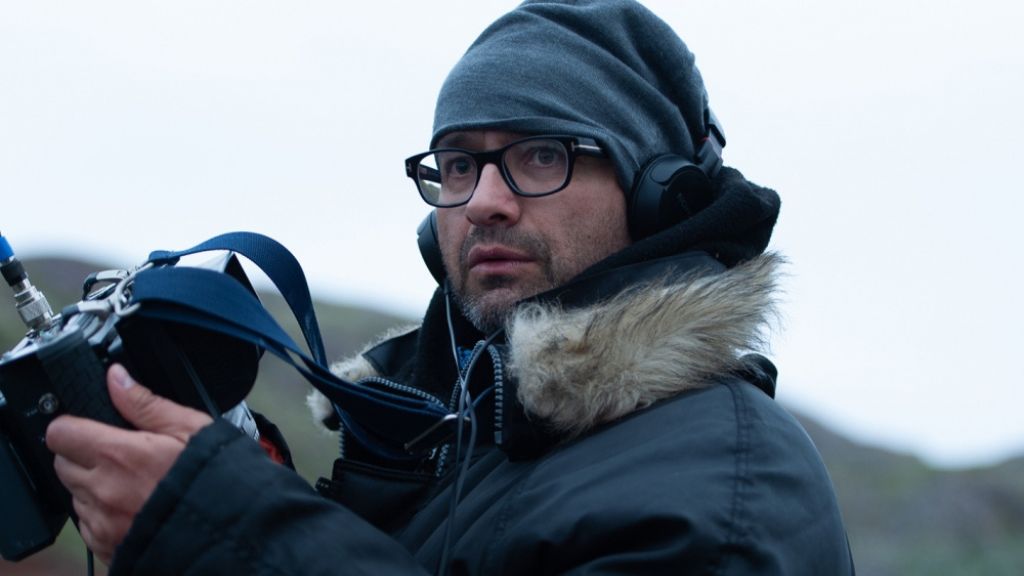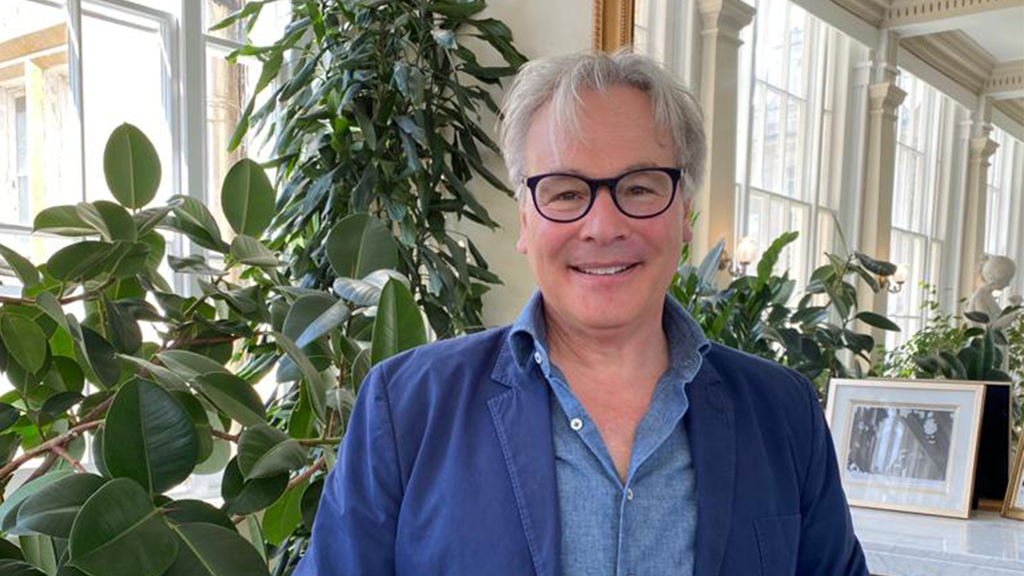
Writer Stephen Walker: I simultaneously lived in 1961 and 2020
British author and documentary filmmaker Stephen Walker is best known for his New York Times bestseller Shockwave: Countdown to Hiroshima and his BAFTA-winning documentary A Boy Called Alex. The release of his new book, Beyond: The Astonishing Story of the First Human to Leave Our Planet and Journey into Space, coincides with the 60th anniversary of Yuri Gagarin’s flight and offers an exhilarating and energetic narrative about this astounding feat of human genius and bravery. During the presentation of the book at the Embassy of Russia Afisha.London magazine’s editor-in-chief Margarita Bagrova had a chance to talk to Stephen Walker and ask him all about the new book.
Beyond is the third book in Stephen Walker’s career — his debut as a writer was the hilarious and unapologetic King of Cannes: Madness, Mayhem and the Movies (1999), which tells the story of a director making a documentary about other directors, who are trying a bit too hard to make an impression at the Cannes Film Festival. In 2005 it was followed by Shockwave: Countdown to Hiroshima — a roaring critical success with a film adaptation in the making. It is currently in the works with director Cary Fukunaga (No Time to Die, 2021) and legendary screenwriter Tom Stoppard already on board, while production is handled by Working Title. Stephen Walker himself is no stranger to the film industry being an acclaimed documentary director: his Channel 4 documentary A Boy Called Alex did not only bring him a BAFTA but also an Emmy and two Rose d’Ors.
- Stephen Walker during the presentation of “Beyond” at the Embassy of Russia in London
- Stephen Walker and Andrei Kelin during the presentation at the Embassy of Russia in London
Walker’s account of the four months leading up to the historic launch of the Soviet R-7 missile carrying a tiny capsule with the first human to ever leave Earth instead of a warhead is full of energy, passion and genuine fascination with the subject. One could even go as far as to say that the energy of the book matches the energy of Gagarin himself, his liveliness and his triumphant world tour that saw him impress Elizabeth II and Harold Macmillan. Beyond is full of unique accounts of the events that Gagarin’s contemporaries shared with Stephen Walker during his extensive research. Together with Svetlana, a researcher he worked with on the book, Walker travelled to Russia and spoke to more than 50 people, some of whom had fascinating stories that were never heard before.
Among Stephen’s interviewees were the widow of German Titov (Yuri Gagarin’s double) and Alexei Leonov — the first human to go to outer space (sadly, Leonov passed away in 2019 before the book was finished). Dan Shaw of History Hits called Beyond a triumph, while BBC History Magazine notes that Stephen mixes screenplay-like dynamism with forensic detail to produce an account that captures a pivotal moment in time. Afisha.London magazine had a conversation with Stephen Walker about inspiration, interviewing techniques and his previous work, which all played a part in creating the thrilling journey that is Beyond: The Astonishing Story of the First Human to Leave Our Planet and Journey into Space. With April 12 marking 60 years since Vostok took flight, Stephen Walker’s account brings this historic event back to life and celebrates Yuri Gagarin — a pioneer of human advance into space.
Follow us on Twitter for more news about Russian life and culture
— Stephen, was there anything in particular that inspired you to write this book?
— I have always been fascinated by space. As a filmmaker, I thought for a long time about making a film based on this story, but it is very difficult to get all the footage, especially since a lot of it has been lost or is very old. I thought that since I cannot make a film about it the way I want to, what I can do is adapt this story as a book. Overall, I think that for me, it was a fascination with space and the sense that this guy was the first one to go there, which was very exciting to me. It also was a fascination with Russia, which I have always had as well.
— How long did it take you to finish the book?
— I wrote it very, very quickly, in 8 months, — I actually started it on the first day of lockdown last March. My publishers at Harper Collins said that for publicity we had to get the book done in time for the anniversary. As a result, I had to work very fast: I wrote in a white heat 6-7 days a week, which, I think, helps the book because there is a lot of energy in it. I felt like I was in my own space race. When I was working on the book, it was as if I travelled in time. One minute I was in Baikonur or in Washington, and then, suddenly, it was COVID-19, the pandemic and 2020. It was a very, very strange experience, I lived in two worlds.

— Your research, I presume, was completed before you actually started writing. Tell us a little bit about it: where did you go, and who did you interview?
— My researcher Svetlana and I sat down and started working out whom we thought would be critical to interview, and that list changed all the time. Inevitably, we went to lots of places. Obviously, we have been to Moscow and Saint Petersburg. We also went to what is now Gagarin but used to be Gzhatsk. We went to Saratov, which is where Gagarin was training as a foundry worker and very close to where he landed in a field. Of course, we went to that field, too; however, the point marked as the place of his landing is not accurate — in fact, it is about 500-600 meters away. We know this from the locals who showed us the real location, which fits perfectly both land and aerial photographs that I have seen.
Furthermore, because Gagarin parachuted out, Vostok landed separately. We met some villagers who remember the events and who showed us exactly where Vostok landed. You could almost see a depression in the ground where the thing actually fell! That also is not quite where the monument is today. In the book I have a whole section where I put all of this evidence together.
Read more: Yuri Gagarin in London: how to impress the Queen and become a British hero
— How did people treat you? Were they surprised that there is yet another researcher writing yet another book about Gagarin, or, on the contrary, were they very friendly and ready to talk?
— What I found is that people in Russia were fascinated that somebody who is not Russian, who had not been brought up with these stories, wanted to listen to them. I was relentless. I would sit for hours really trying to get them to open up because sometimes, at first, people give you the sort of version they have told many times before. You keep going, and then, eventually, start to get something which feels real. Those are the stories that I have got in the book. People were very friendly, very warm. Russian hospitality is genuinely incredible. One of the things I find so fascinating about Russia is that people there are very familial — when they like you and trust you, they give you their soul. It was very beautiful to see that happen.
- Yuri Gagarin on board of Vostok-1. Photo: РИА Новости
- Shortly after Vostok-1 landed in a field near Saratov. Photo: РИА Новости
— What was it you were looking to hear from those you interviewed? Do you have your own unique approach to interviewing?
— When talking to people I am interested in trying to find out what it was like to be a witness of the events. What did it feel like to be in the bunker when Vostok launched? What was your last impression of Yuri Gagarin when he went to the launch pad? What did it feel like when you shook his hand? Was it a strong handshake? Was it a light handshake? A scared handshake? You can tell a lot about a human being from the way they shake your hand. Did he make eye contact or did he sort of look away? What kind of man was he? Did you believe his smile when he smiled? All those things can tell a lot about the human behind the hero.
After a while, like a detective, you start to build a picture, which is three-dimensional, and that picture is in the book. When I was writing about the launch of the rocket, I felt like I was there. I was in that rocket. I was in that bunker. I was watching. I was waiting. I know people were sweating. I know people were taking pills. I know that Korolev had a very bad heart problem and was taking pills for his heart. Everybody was tense and scared. Very scared. It also was more complicated because Korolev loved Gagarin like a son, and he was afraid he might be about to sacrifice his own son for his dreams of human space flight.
Follow us on Twitter for more news about Russian life and culture
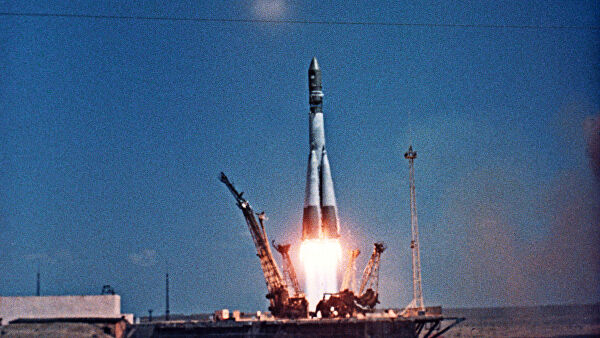
The launch of Vostok-1 with Yuri Gagarin on board at Baikonur in Kazakhstan. Photo: РИА Новости/Sputnik
— What was your previous book about and how is it different from Beyond?
— Years ago, I wrote a book a bit like this one in terms of structure but very different in terms of the story. It is called Shockwave: Countdown to Hiroshima and is about the dropping of the atomic bomb. It follows a similar pattern, a similar construct. Beyond is my next book because Shockwave was about technology for destruction, while Beyond is about technology for exhilaration. There is a parallel: in a sense, one is dark and one is light.
Going back to interviewing people for my books, I remember talking to a man when I was working on Shockwave. He was telling me about the day the bomb fell — it was the same story he had been telling everybody for the last 50 years. Then I asked him what happened the night before the bomb dropped on Hiroshima, and he said that no one had asked him that question before. So he told me a love story. He told me about how he was together with a girl, they were holding hands and spent the night looking at the stars. It was the last night before Hiroshima was bombed, and the next day, after the bombing, he spent the whole day trying to find that girl that he had spent the evening with the night before. He had never told that story to anybody.
Everybody has their version of a story. As a journalist, I know that the way to get the answers is to ask questions which are slightly off kilter because it helps trigger real memories as opposed to what people think of real memories. Many, many times while I was working on Beyond people would say that they have never been asked that before. The book is full of that, and it reads like a novel while actually being about real events.
Beyond: The Astonishing Story of the First Human to Leave Our Planet and Journey into Space is available on Amazon.
Afisha.London magazine thanks the Embassy of Russia in London for the opportunity to meet the author.
Margarita Bagrova/Liya Shapiro
Cover photo: Afisha.London
Read more:
A grandiose Fabergé exhibition will open at the Victoria and Albert Museum
National Trust is trying to save a tapestry depicting Peter the Great from moths
SUBSCRIBE
Receive our digest once a week with quality Russian events and articles
